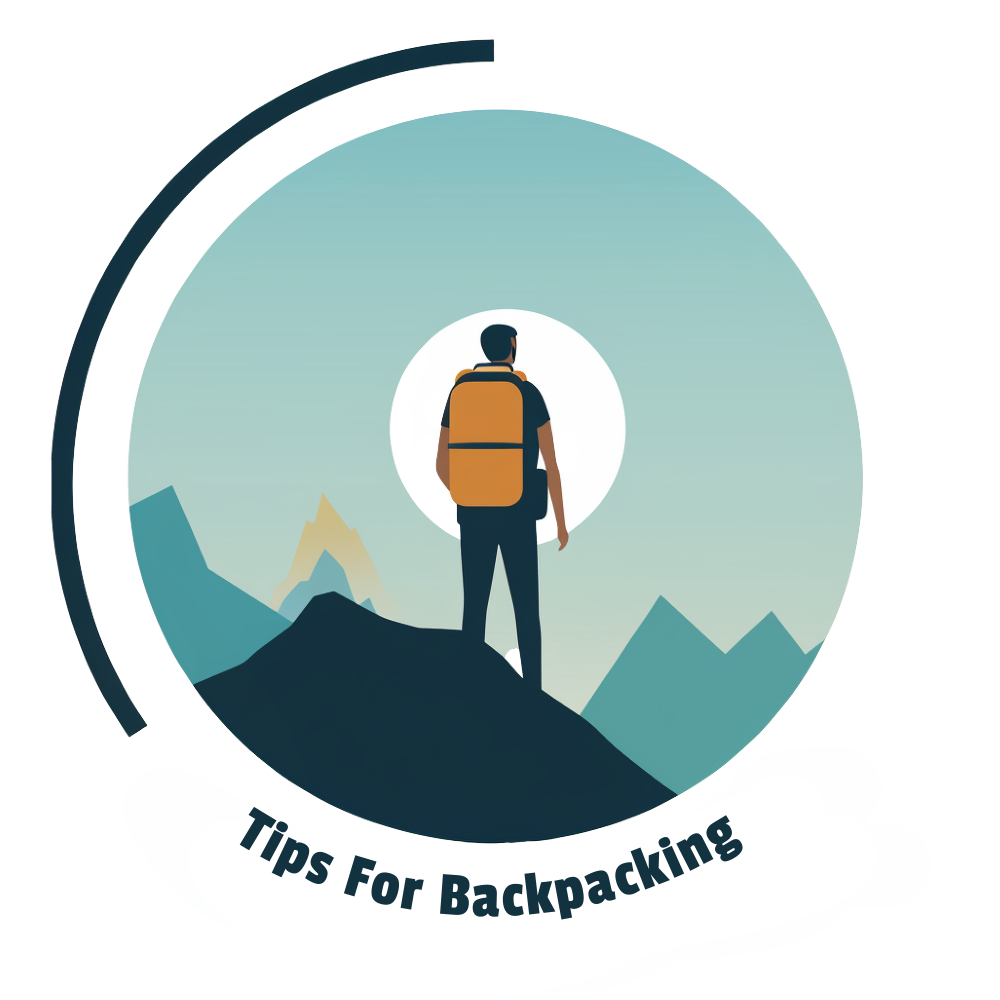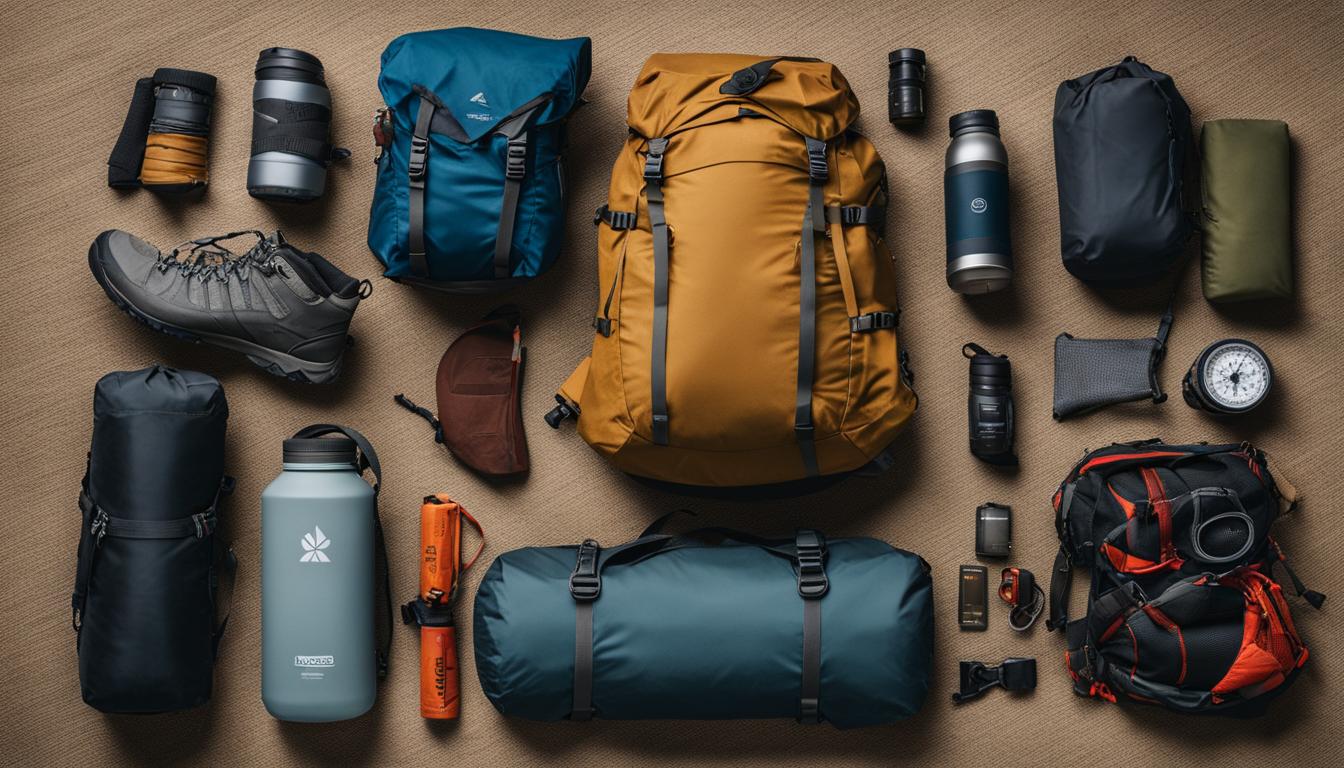Hey there, fellow adventurers! If you’re new to the world of backpacking, there’s a whole wealth of knowledge waiting for you. As an experienced backpacker, I’ve learned the ropes and collected valuable tips and tricks along the way. Now, I’m here to share that essential knowledge with you.
Whether you’re planning your first backpacking trip or looking to enhance your skills, this guide is packed with backpacking essentials, tips for beginners, and the basics you need to know. So, let’s dive in and get you ready for some unforgettable backpacking adventures!
Key Takeaways:
- 43 tips compiled to help new backpackers improve their backpacking experience
- Skills like taping a sprained ankle, fixing a broken tent pole, and walking downhill to avoid fatigue
- Importance of checking campfire regulations and obtaining permits
- Advice for staying safe on the trail and packing for a comfortable night’s sleep
- Insights from backcountry guides on how to navigate the wilderness fluently and effortlessly
How to Start Backpacking: A Beginner’s Guide

Embarking on your first backpacking adventure can be both exciting and daunting. To help you get started on the right foot, here are some essential skills and tips that every new backpacker should know.
Gather Your Gear:
Before setting off on your backpacking journey, it’s crucial to gather all the necessary gear and clothing. If you’re on a budget, consider borrowing or renting items like tents, sleeping bags, and sleeping pads to keep costs low. Pack lightweight and compact gear that won’t weigh you down on the trail. Don’t forget essentials like a backpack, stove, and water treatment solution.
Plan and Prepare:
Prior to hitting the trail, carefully plan and prepare for your backpacking trip. Choose an easy destination close to home for a short overnight hike, especially if it’s your first time. Research the trail conditions, check if any permits are required, and familiarize yourself with Leave No Trace principles for responsible backpacking. Pack enough food for your trip, including easy-to-cook options and plenty of snacks for energy. Consider inviting an experienced backpacker friend to join you for added guidance and safety.
Choose the Right Destination:
When selecting a backpacking destination, seek advice from experienced backpackers and consider a well-traveled trail with nearby amenities. Look for destinations that match your skill level and preferences. Whether you’re interested in stunning views, lush forests, or serene lakes, there’s a trail out there that suits your interests. Take into account the trail difficulty, elevation gain, and the availability of water sources along the way.
By following these essential tips and gaining the necessary skills, you’ll be well-prepared to embark on your backpacking adventure. Remember to start small, gather the right gear, plan and prepare, and choose a suitable destination. Happy trails!
Can Beginners Use Essential Backpacking Knowledge as a guide to Backpacking 101?
Absolutely! A good backpacking essentials guide can be very useful for beginners. It provides valuable information on what to pack, how to plan a trip, and how to stay safe in the wilderness. By following a backpacking essentials guide, beginners can feel more confident and prepared for their adventures.
Conclusion
As a beginner backpacker, there are essential skills and knowledge that you must acquire to have a successful and enjoyable trip in the wilderness. Understanding trip planning, gear selection, food preparation, permits and rules, and low-impact recreation is crucial.
Choosing the right backpacking destination is key to a memorable experience. Make sure you are prepared physically and mentally for the hike, and research the trail conditions and campsite options beforehand. Additionally, selecting the appropriate gear and clothing, such as lightweight and compact options, will help ensure efficiency and comfort throughout your journey.
Don’t forget about food storage, water treatment, and other backpacking necessities. These factors play a significant role in your overall comfort and well-being on the trail. It is also important to familiarize yourself with Leave No Trace principles to minimize your impact on the environment and practice responsible camping and hiking etiquette.
Remember, backpacking is a skill that can be developed and improved over time. If you want to showcase your proficiency in backpacking skills, consider earning backpacking skills badges. So, start your backpacking journey, embrace the wilderness, and create unforgettable memories in the great outdoors!

